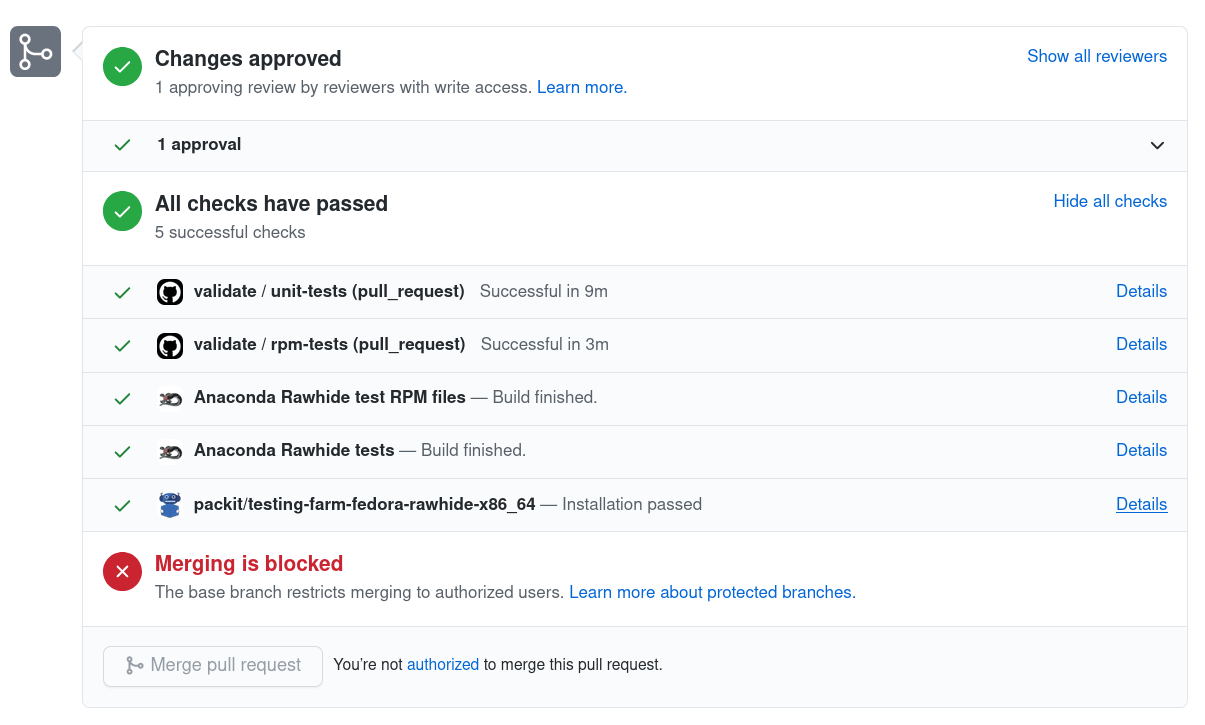Fedora EL Niño (ELN) is such an awesome idea. It enables building rawhide packages in two distinct buildroots:
- the standard Fedora Rawhide buildroot and
- a second one, which mimics Red Hat Enterprise Linux
This way you can make sure that your new upstream release builds fine in the next RHEL.
But this feedback might be a little bit too late: the upstream release already happened and the code was imported in Fedora dist-git, so fixing an issue will require repeating the whole process. Wouldn't it be better to know if the upstream change builds fine in ELN while working on the code?
Oh, wait!
You can do this easily with Packit
If your GitHub project is not using Packit yet, here's a guide how to start.
Once it's set up, you need to make sure that your pull requests are also being
built in the fedora-eln target:
jobs:
- job: copr_build
trigger: pull_request
metadata:
targets:
- fedora-development
- fedora-eln
With this config, changes from every pull request will be built in all development versions of Fedora (at the time of writing this, it's Rawhide and Fedora 33) and in Fedora ELN.
Easy, right?
Packit can also trigger builds when you push to a branch. If you want to have up to date builds of your main branch for ELN and development versions of Fedora, here's how to set it up:
jobs:
- job: copr_build
trigger: commit
metadata:
targets:
- fedora-development
- fedora-eln
branch: main
A real-life example
If you got here and you're still not sure why you'd need this, I can give you a real-life example.
Recently, Jirka Konecny from the RHEL
Installer team reached out to us that they would love to use Packit as a CI
system. He set it up and now all the anaconda PRs are being built and tested on
Fedora Rawhide x86_64.

Jirka continued and added Fedora ELN as an additional target. The build failed because one of build requirements was not available in ELN:
Fedora ELN - Developmental modular packages for the next Enterprise Linux release 2.7 kB/s | 2.3 kB 00:0
No matching package to install: 'metacity'
Not all dependencies satisfied
Error: Some packages could not be found.
Since the team discovered this during their upstream development process, they can react to the issue right away. It would have been pretty late if they found this while the next major RHEL is reaching alpha - at this moment they should have enough time to fix the problem and make sure anaconda builds fine in ELN.
So, are you convinced? Let us know if you need help setting up Packit in your upstream repositories :)
